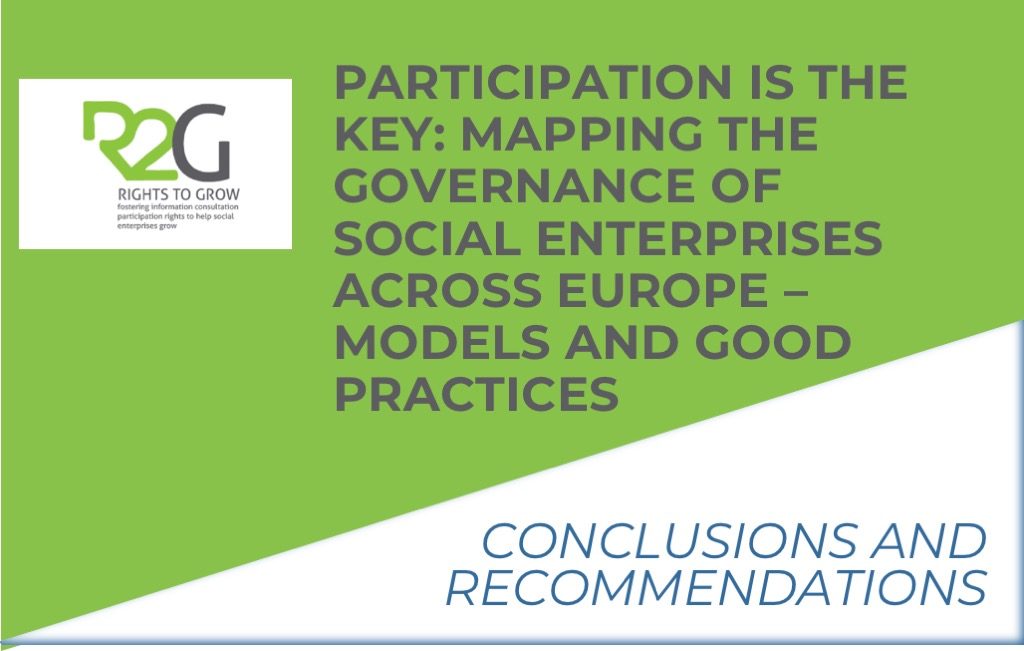
• Social enterprises should recognise the role trade unions can play in ensuring their employees’ individual and collective rights.
• Trade unions should support the democratic practices typical of social enterprises, which act as role models for deeper and more inclusive social dialogue. The recognition of social enterprises in the Social Dialogue, already a reality in many Member States, should be given further value.
• Social enterprises should consider establishing umbrella and consortium structures to enable growth to be combined with democratic governance. • Social enterprises should consider various ways to better involve users in their governance. • Government, finance, culture, business, trade unions and civil society must come together to create a support ecosystem for social enterprises that is linked through structures such as federations and consortia, which build the capacity of social enterprises to drive their own development.
• Local and national authorities should recognise the potential of social enterprises to meet societal needs, improve public service provision, and reduce poverty and exclusion, while stimulating entrepreneurship.
• Sources of capital should be developed which are oriented to the long-term benefits of social enterprise success, and do not demand either immediate financial returns or control of the enterprise. • Legislators, associations and co-operatives should work together to ensure that voluntary organisations (NGOs) are able to engage in trading as they work towards this transition to economic sustainability.
• Social enterprises should make more use of social impact measurement and reporting.

